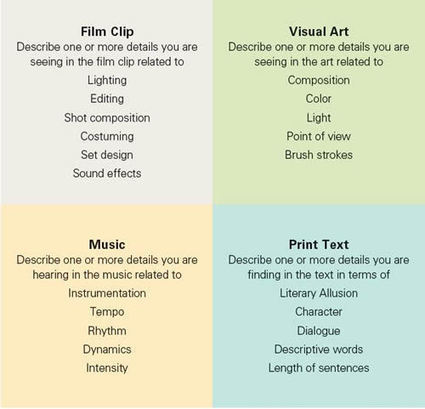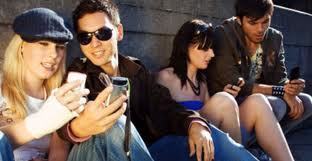Jamie McKenzie writes: "It is essential that schools teach students how to escape this stranglehold that Google creates. While helping visitors to find the information they need, Google effectively limits and narrows their searches - steering them toward the obvious and the conventional."
Get Started for FREE
Sign up with Facebook Sign up with X
I don't have a Facebook or a X account
 Your new post is loading... Your new post is loading...
 Your new post is loading... Your new post is loading...

GwynethJones's curator insight,
December 10, 2016 7:29 PM
Digital deception, outright lies, and bogus news - now more than EVER we need to teach how discernment & authority. |

Cristin Kennedy's curator insight,
March 26, 2016 12:07 PM
Maha Bali's article is worth sharing widely with anyone who needs to be nudged ever so gently into the 21st century of education. (We're 16% through it, folks!) Bali addresses the need to teach about digital skills and literacy in an authentic context, not a vacuum, and gives many concrete examples for doing that.
I recently did a lesson on blogging with a 6th grade class. We looked at several tween and teen blogs, then reviewed good digital citizenship practices emphasizing student safety and copyright. Finally, each student created a blog on Blogger. Will they make mistakes? Probably. (When I specifically told them to keep it school appropriate, with nothing in the blog they wouldn't be allowed to do at school, and one student immediately started searching for "Call of Duty 3" images!) Will we all learn something from this? Absolutely. 
Natasha Georgiou's curator insight,
March 27, 2016 12:00 AM
Maha Bali's article is worth sharing widely with anyone who needs to be nudged ever so gently into the 21st century of education. (We're 16% through it, folks!) Bali addresses the need to teach about digital skills and literacy in an authentic context, not a vacuum, and gives many concrete examples for doing that.
I recently did a lesson on blogging with a 6th grade class. We looked at several tween and teen blogs, then reviewed good digital citizenship practices emphasizing student safety and copyright. Finally, each student created a blog on Blogger. Will they make mistakes? Probably. (When I specifically told them to keep it school appropriate, with nothing in the blog they wouldn't be allowed to do at school, and one student immediately started searching for "Call of Duty 3" images!) Will we all learn something from this? Absolutely. 
Martha Bongiorno's curator insight,
October 19, 2016 1:08 PM
Maha Bali's article is worth sharing widely with anyone who needs to be nudged ever so gently into the 21st century of education. (We're 16% through it, folks!) Bali addresses the need to teach about digital skills and literacy in an authentic context, not a vacuum, and gives many concrete examples for doing that.
|















This would be an excellent introduction to using keywords when researching. Have students read a short biography, then have them choose three or four words from the biography to add to their search. In Jamie's example, [Isadora Duncan AND critics] led to information that probably wouldn't show up on Biography.com! When I tried [George Washington AND critics], I also found richer resources.
The key to this is that students would need some basic knowledge in order to determine which keywords to use! Likewise, Jamie's "questions of import" are great, but I know if I asked students to use them, the first thing they would do is Google the exact question, then complain that nothing came up:)
I'd love to do this as a stand alone library lesson: a short introduction, then time to read a short online biography, choose the keywords to add, and discuss their findings. It certainly would help students become more thoughtful about their research!